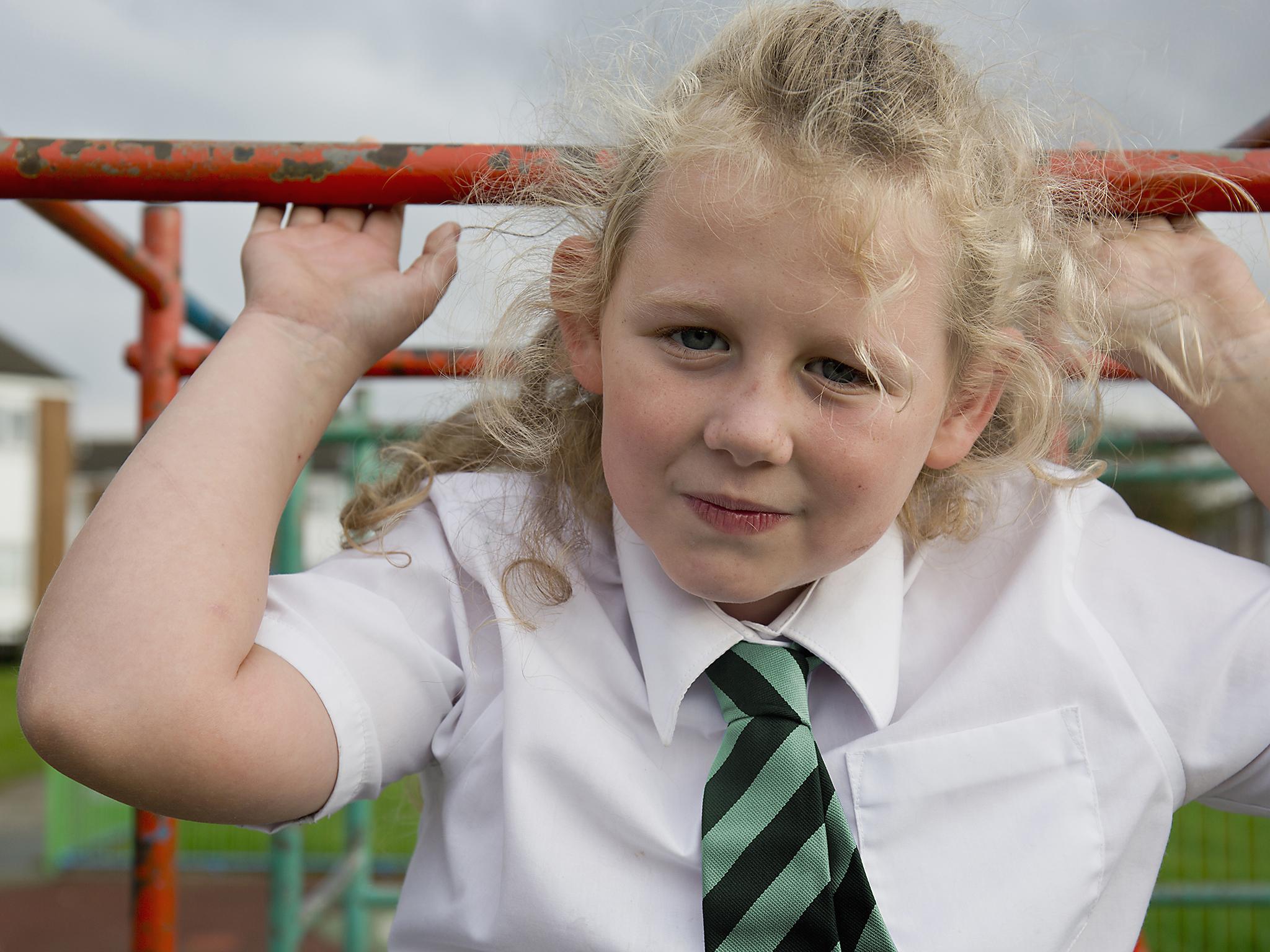Last night's TV: Prison, My Parents and Me (BBC1); Ordinary Lies (BBC1)
The devastating impact on children of having one or both parents locked up was brought to our screens in all its grim reality

Your support helps us to tell the story
From reproductive rights to climate change to Big Tech, The Independent is on the ground when the story is developing. Whether it's investigating the financials of Elon Musk's pro-Trump PAC or producing our latest documentary, 'The A Word', which shines a light on the American women fighting for reproductive rights, we know how important it is to parse out the facts from the messaging.
At such a critical moment in US history, we need reporters on the ground. Your donation allows us to keep sending journalists to speak to both sides of the story.
The Independent is trusted by Americans across the entire political spectrum. And unlike many other quality news outlets, we choose not to lock Americans out of our reporting and analysis with paywalls. We believe quality journalism should be available to everyone, paid for by those who can afford it.
Your support makes all the difference.The BBC calls Prison, My Parents and Me a “groundbreaking” programme, and I suppose they are right about this Children in Need special. I don’t think, at any rate, I’ve seen much coverage of the devastating impact having a parent – or, more rarely, both parents – in prison has on a child, though you could argue you don’t need to sit through an hour of television to work that one out.
The statistics offered up were devastating too; a very high proportion of jailbirds who are cut off from their families tend to reoffend. About 100,000 British children have one or both parents serving time (plus a few more paying back their debts to society in the company of their children in mother-and-baby units – a more dismal start in life it is difficult to envisage).
The children involved all coped, or not, in their own ways, some by bottling it all up, some by talking, some by hugging, some by jogging. The undisputed star of the show was Ruby, whose dad was awaiting sentence for much of the time we saw here. Eventually this sweet kid, not much more than a toddler, discovered that her father had been given eight years for his offence. She greeted it as good news on the grounds that it didn’t seem that long to her, although I reckon it was a little more than her own age. Listening to her describe watching Daddy getting arrested and pinned down by the coppers, and then watching her being searched, just like an adult visitor, on a trip to see him was upsetting to witness.
So the point was emotionally and graphically rammed home with all the heft of a Victorian prison gate that the children suffer for things they had nothing to do with, and the question hung in the air, how and why should this be? And yet throughout I kept wanting to know what it was that these men and women had done so wrong that they had sent much of their adult lives in prison (although drugs were often as not part of the story). I also, I am sorry to say, wondered whether, being cut off from family and children isn’t just another facet of the price you pay if you commit crimes against people who presumably were just as blameless as your kids. Assault, burglary, drug dealing, fraud, actual bodily harm – I wondered about which crimes had been visited upon the children.
The children, yes, were visibly in need of their mummies and daddies, and who wouldn’t want to give a few quid for some Lego in the prison’s family room? Even so, I didn’t find my flinty heart entirely won over by this exercise in emotion exploitation. Society has a right to retribution against those who commit crimes, as well as encourage rehabilitation and discourage reoffending. Not even Ruby’s touching letters to and from her dad in jail could persuade me away from that particular conviction of mine.

I’ve written before about my admiration for Ordinary Lies, and last night’s episode, the fifth in the six-episode run, was just as emotionally searing as the others. A cross between a traditional soap and one-off dramas, the point of Ordinary Lies, as if it needed one, was that what we so fondly imagine is the mainstream family unit is in fact the exception rather than the rule. As for the fictional staff at Coopers, a sports supply warehouse in Wales, so for everyone in rel-life Britain. Most families most of the time are suffering form some sort of malfunction or, more happily, fuunctioning harmonious with non-traditional configurations.
Last night, for example, saw Fletch (Matt Di Angelo) of the fork life truck confront the dad he never knew and he hasn’t met in the 30 years since the old boy had an extramartial affair with his mother, who told him his dad was soem sort of romantic rock musician somehwere round LA, and not a self-employed businessman somewherer round Bristol. Played by Griff Rhys Jones with almost unwatchable smugness, the encounter between the two doesn’t go well, and must make anyone in that position wonder about whether they would do right by leaving the bastard past well alone, or by satisfying their own sense of curiosity or devilment.
Along with tales of flings, mental health issues, alcohol abuse, non-answering mobiles and women trying to get pregnant or desperately trying not to, Ordinary Lies offers a raw reflection of the rich variety of personal angst in real-life Britain, an almost Chaucerian ride through modern lives and mores. Mind you, they haven't got round to doing a Brexit or Trump-based storyline yet. That really would be traumatic.
Join our commenting forum
Join thought-provoking conversations, follow other Independent readers and see their replies
Comments